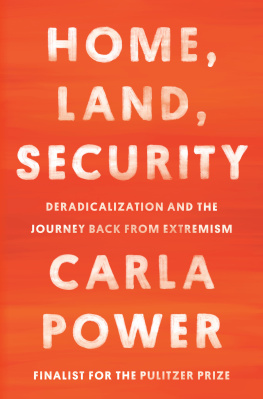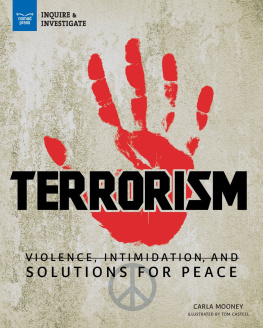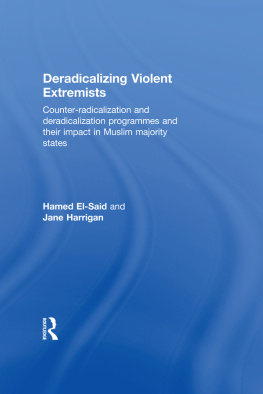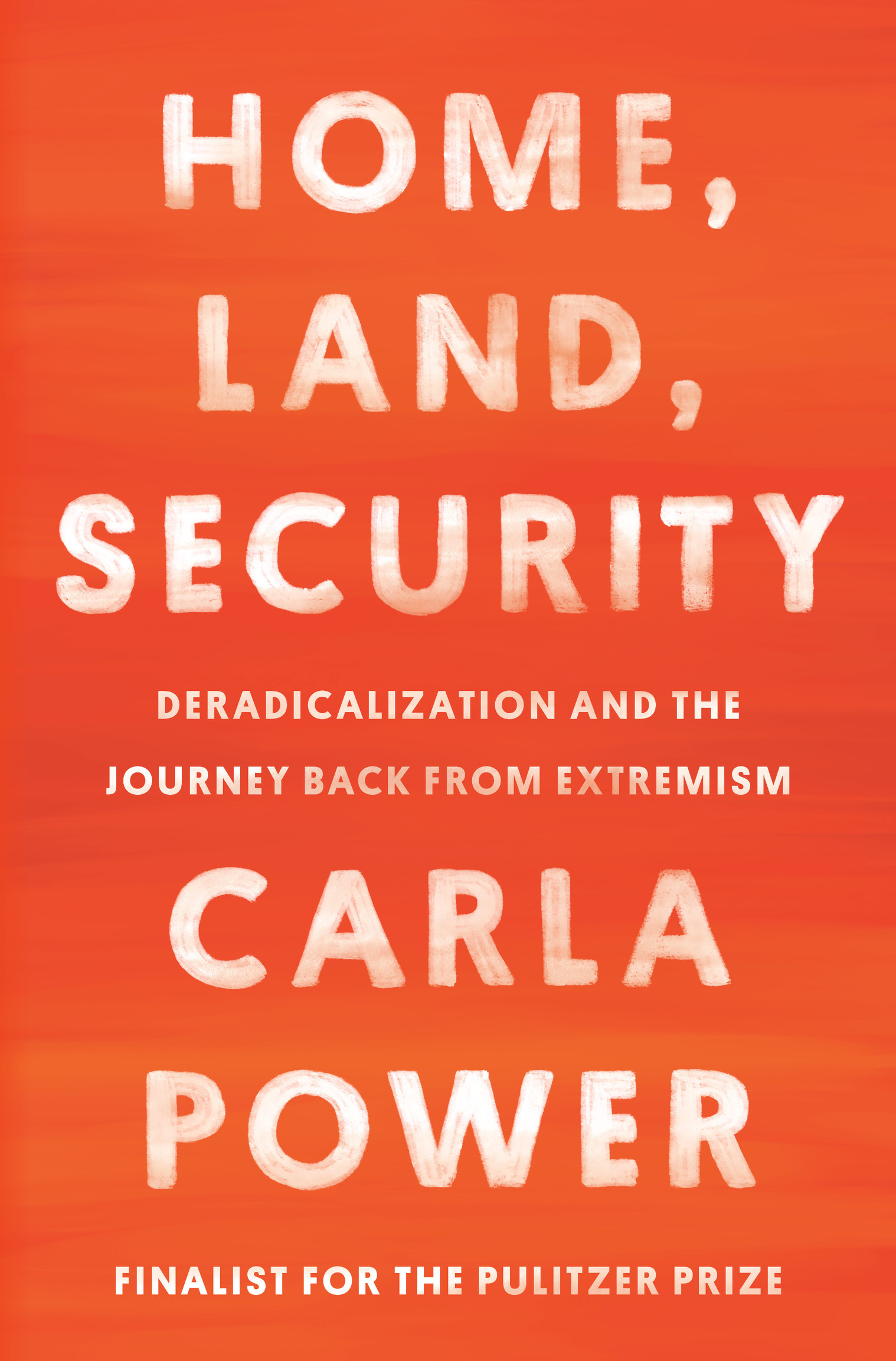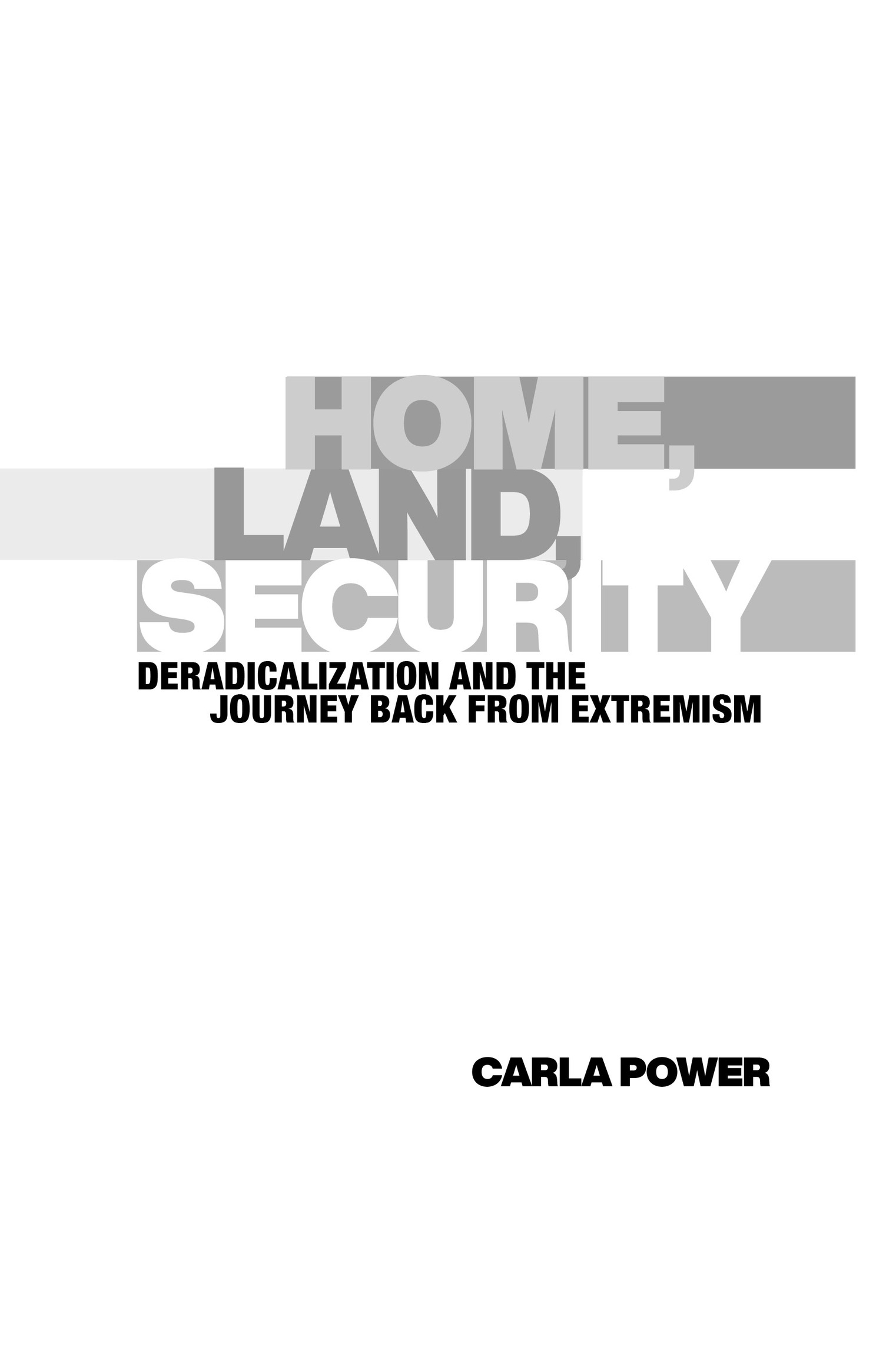Carla Power - Home, Land, Security: Deradicalization and the Journey Back From Extremism
Here you can read online Carla Power - Home, Land, Security: Deradicalization and the Journey Back From Extremism full text of the book (entire story) in english for free. Download pdf and epub, get meaning, cover and reviews about this ebook. year: 2021, publisher: Random House Publishing Group, genre: Politics. Description of the work, (preface) as well as reviews are available. Best literature library LitArk.com created for fans of good reading and offers a wide selection of genres:
Romance novel
Science fiction
Adventure
Detective
Science
History
Home and family
Prose
Art
Politics
Computer
Non-fiction
Religion
Business
Children
Humor
Choose a favorite category and find really read worthwhile books. Enjoy immersion in the world of imagination, feel the emotions of the characters or learn something new for yourself, make an fascinating discovery.
- Book:Home, Land, Security: Deradicalization and the Journey Back From Extremism
- Author:
- Publisher:Random House Publishing Group
- Genre:
- Year:2021
- Rating:4 / 5
- Favourites:Add to favourites
- Your mark:
Home, Land, Security: Deradicalization and the Journey Back From Extremism: summary, description and annotation
We offer to read an annotation, description, summary or preface (depends on what the author of the book "Home, Land, Security: Deradicalization and the Journey Back From Extremism" wrote himself). If you haven't found the necessary information about the book — write in the comments, we will try to find it.
What are the roots of radicalism? Journalist Carla Power came to this question well before the January 6, 2021, attack in Washington, D.C., turned our countrys attention to the problem of domestic radicalization. Her entry point was a different wave of radical panicthe way populists and pundits encouraged us to see the young people who joined ISIS or other terrorist organizations as simple monsters. Power wanted to chip away at the stereotypes by focusing not on what these young people had done but why: What drew them into militancy? What visions of the worldof home, of land, of security for themselves and the people they lovedshifted their thinking toward radical beliefs? And what visions of the world might bring them back to society?
Power begins her journey by talking to the mothers of young men whod joined ISIS in the UK and Canada; from there, she travels around the world in search of societies that are finding new and innovative ways to rehabilitate former extremists. We meet an American judge who has staked his career on finding new ways to handle terrorist suspects, a Pakistani woman running a game-changing school for former child soldiers, a radicalized Somali American who learns through literature to see beyond his Manichean beliefs, and a former neo-Nazi who now helps disarm white supremacists. Along the way Power gleans lessons that get her closer to answering the true question at the heart of her pursuit: Can we find a way to live together?
An eye-opening, page-turning investigation, Home, Land, Security speaks to the rise of division and radicalization in all forms, both at home and abroad. In this richly reported and deeply human account, Carla Power offers new ways to overcome the rising tides of extremism, one human at a time.
Carla Power: author's other books
Who wrote Home, Land, Security: Deradicalization and the Journey Back From Extremism? Find out the surname, the name of the author of the book and a list of all author's works by series.

